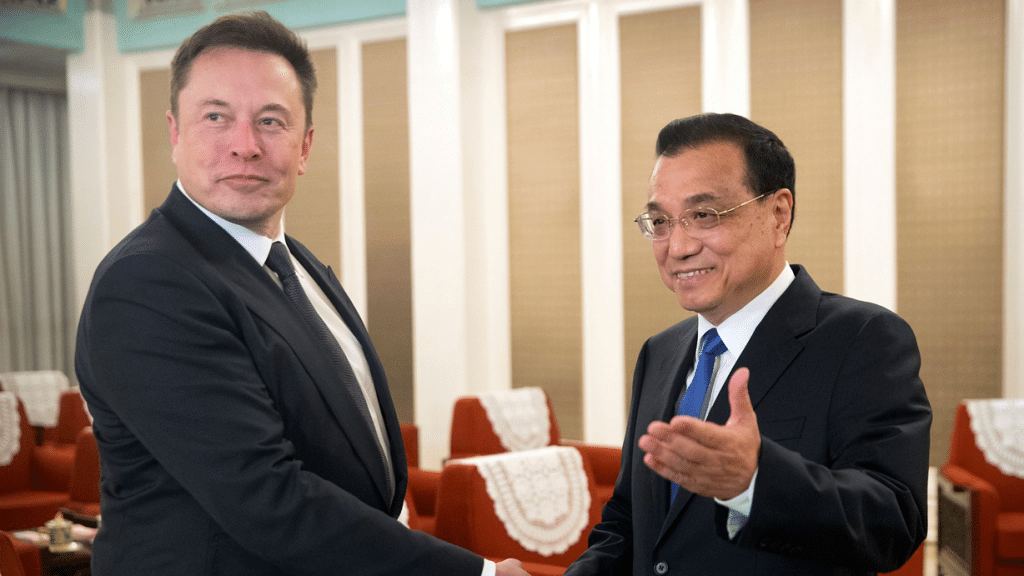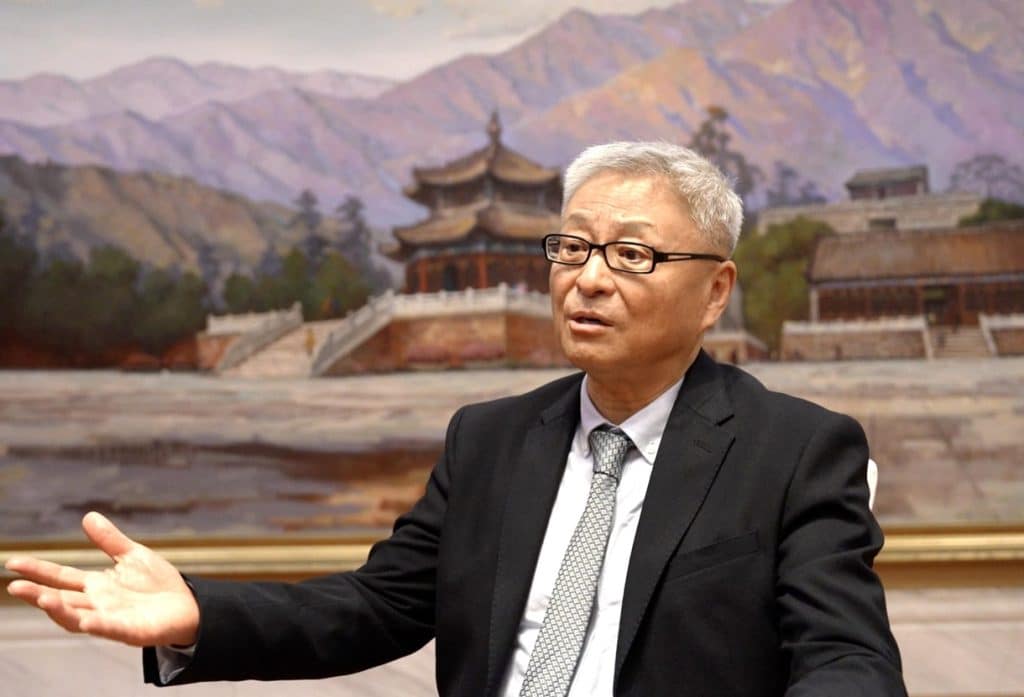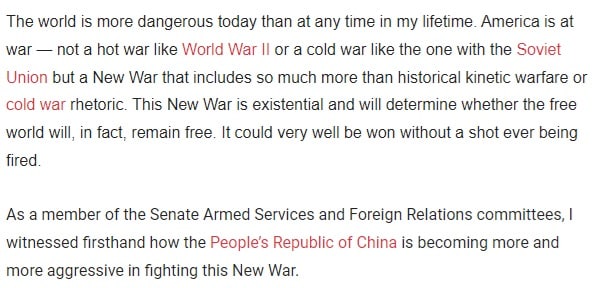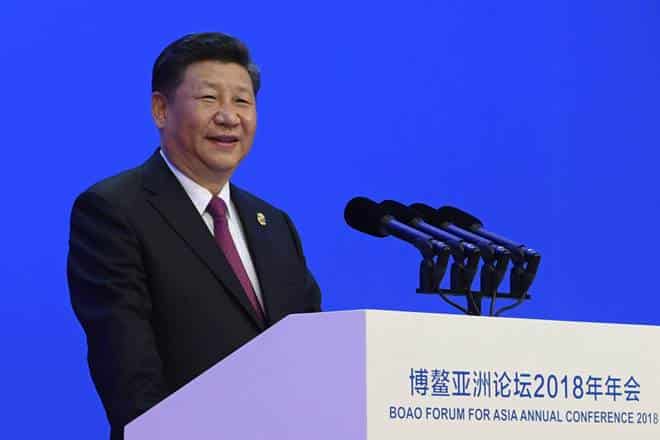China’s "Appeal Mom" Denied Compensation and Justice—A Case Study Analysis through Weibo
作者:Julie Wu 来源:US-China Perception Monitor
On Friday April 12, the Yongzhou Intermediate People’s Court in Yongzhou, Hunan denied compensation to a former labor camp inmate. Tang Hui, who was sentenced to 18 months in a labor camp in August 2012 after petitioning for harsher punishment for the men who raped her young daughter, had sued the Yongzhou authorities for 2,460 yuan (approximately 400 USD) in compensation and requested a written apology from the Yongzhou Re-education through Labor Commission.
Tang garnered widespread media attention over the years and earned herself the title of “Appeal Mom” as a mother relentlessly appealing court decisions and demanding justice for her daughter. Her most recent court hearing has again resonated with netizens in China, and a picture of Tang crying outside the courtroom has gone viral on Weibo.[1]
Story of the “Appeal Mom”
Tang began her story and quest for justice almost seven years ago in October 2006, when her then 11-year-old daughter, Lele (pseudonym), disappeared. Lele was kidnapped by human traffickers, and was raped and forced into prostitution at a local brothel before she was finally discovered and rescued three months later.
At first, the local police department was reluctant to establish a case for Lele and dismissed it as “just another public-order case.”[2] Tang suspected that the Yongzhou police department was shielding the owners of the brothel and threatened to end her life if the local authorities did not offer justice. The local police department finally placed the case on file for investigation in January 2007.
In June 2008, the Yongzhou Intermediate People’s Court issued sentences to seven defendants: death sentences to two defendants, life sentences to two others, and 15 to 16 years in jail for the other three. Tang was not satisfied with the verdict and pushed for the death penalty for all seven defendants. Moreover, she claimed that local police officers had falsified evidence to lessen the sentence for Qin Xing, the owner of the brothel[3],, and that Lele’s identification of two local policemen as rapists was deliberately ignored by government investigators.
Since then, Tang continued to demand punishment for the police officers who tried to shield the offenders. In June 2012, the Hunan Provincial Higher People’s Court finalized the verdict: the two abductors were sentenced to death, four others received life sentences, and one defendant was given a 15-year sentence. Upon hearing the judgment, Tang indicated that she would stop appealing and lead a peaceful life with her family.
Tang Sentenced to “re-education through labor” camp incites Weibo justice
However, Tang’s happiness and peace was short-lived. On August 2, 2012, Tang received a letter stating that she had been sentenced to 18 months of re-education through labor for having “disturbed social order countless times, not repenting after penalty and continuing her vexatious acts…seriously disturbing the institutional and social order.” Eighteen months. No lawyer and no trial.
Before she was taken away Tang called her attorney, who posted the news to his Weibo, China’s popular social media platform akin to Twitter. Within days, her story had reached more than 30 million Weibo users, causing a national outrage. What ensued on Weibo were downpours of public criticism and discontent as furious netizens demanded Tang be released. Ten days later, China Central Television(CCTV) announced Tang’s release. Although officials did not admit to this, the people credited the overwhelming Weibo uproar and public pressure as what led to a reversal of the government’s sentence.
“Weibo had a very big impact on my situation because our local government tried to cover up this case….But this time, people around China and even around the world found out they put me in the labor camp. And the local government couldn’t resist so many people’s power,” Tang Hui stated upon her release in August 2012.
By allowing the public to stay informed of current events, Weibo often presents itself as a platform for ordinary citizens to voice their problems and rally support. Tang’s release from the labor camp suggests that Weibo can also work as an instrument to pressure politicians on local government officials. Before the emergence of Weibo, local people actually had limited channels to try to solve their problems.
Weibo’s reaction to the latest court decision
Up until April 12, Tang’s case has been reviewed by the court six times and remanded twice, and has received four different rulings. Since then, Tang has once again become the topic of discussion on Weibo.
Sina Weibo’s daily Current Events Hot Searches List provides a list of top keywords of the day based on what its users are searching. On April 12, within hours after Tang’s trial in the afternoon, the term “Tang Hui (Appeal Mother Tang Hui from Yongzhou, Hunan, lost her lawsuit)” was ranked number four with 19,229 searches and rising. Its counterpart on Tencent Weibo showed that the term “Tang Hui” was in approximately 44,400 tweets/retweets; the number nearly doubled to approximately 97,500 tweets/retweets on April 14.
Most people are sympathetic towards Tang, and they were quick to point out the flawed logic in the court’s reasoning. That is, Tang’s sentence to re-education through labor was once justified by the court, but her release later meant that the court was wrong in its initial ruling and should compensate Tang for its wrongful decision. The court, however, has affirmed that both of its decisions stand correctly and have refused Tang compensation.
Famous businessman and renowned Angel Investor, Xue Manzi, commented on the event on his Weibo: “Today’s Dou E[4], [I] cry with you!”
Other netizens’ responses reflected the views of the court, as one Weibo user commiserated with Tang for a different reason:
[blockquote3] “…Tang Hui did not possess any strong evidence to prove that the two policemen were guilty. In addition, she unreasonably demanded that “all seven defendants must [receive] the death penalty” and also disturbed the public numerous times because of this. [I can] only sympathize with how she does not understand the law.”[/blockquote3]
What started as sheer sympathy for Tang soon became sobering thoughts toward China’s legal system, with netizens describing it as “unreasonable” and “shameless.” Bai Gu Lun Jin, a renowned freelance writer in China, solemnly stated on his Weibo: “What Tang Hui cries for is her daughter, what my heart cries for is the law…”
In addition, netizens were surprised by the tweet from People’s Daily, the top news source of the Chinese Communist Party. Commonly perceived as a nationalist voice of the Chinese government, People’s Daily seemed to have taken a different stance on Weibo with regards to the decision of Tang’s latest trial:
[blockquote3]“Having lost the trial, [she] covered her face and wept. Today, “Appeal Mother” Tang Hui has once again tugged the people’s heartstrings. This is [an expression of] sympathy towards a mother, but more so a concern for the common justice. The allure of the China Dream is not solely dependent on the greatness of a nation, but more so on the individual’s happiness and self-esteem. Mother Tang’s tears should not become the sore spot of the China Dream. [We are] expecting a just trial, expecting reform, [so that] the sunshine of the rule of law will bring warmth to everyone. Peace.”[/blockquote3]
In response, Chinese writer and historian, Zhang Lifan retweeted People’s Daily: “This time, the official Weibo of People’s Daily stood with the people. The extremely evil re-education through labor system does not need ‘reform,’ it should be abrogated at once.”
China’s labor camps and moving forward
Since the court’s latest decision, the people’s attention has shifted to a serious reevaluation of China’s re-education through labor system that lacks judicial oversight.
Under the current “re-education through labor” system in China, petty offenders can be imprisoned for up to four years in labor camps without a judicial hearing. Different from formal prison system, these camps are often used to persecute human rights activists and intellectuals that have expressed dissent at the government.
At the time when Tang’s case first reached the public, many people said that she would become the one who triggers the reform of China’s re-education through labor system. Since then, the cases of Ren Jianyu[5] and others have all been discussed similarly. However, half a year has passed since Tang’s last trial; re-education through labor still remains and now even Tang Hui has lost her case.
While some believe that Tang’s perseverance would eventually lead her to justice, many are now left more skeptical of China’s legal system by the decision on April 12. In addition, if the court had granted her compensation, then Tang would have created a precedent for former labor camp inmates to request compensation. It is dubious that the Chinese government is ready to accept the requests of former inmates plus the 190,000[6] some people that are still locked up in the 320 labor camps across China.
China Youth Daily journalist, Ye Tieqiao, highlighted the significance of Tang’s case on Weibo:
[blockquote3]“#Concerning the Tang Hui Case#: Observing the trial of Tang Hui’s case, [my] greatest feeling was that this was a verdict for a mother with strong self-respect. [As such], the court should have made its judgment with [equal] respect, though sadly, she never received support from the court. However, although on the same battlefield, looking through Weibo, she has won respect from an even broader platform, and allowed people to witness the strength of perseverance. This, perhaps, is the greatest meaning of today’s trial. (April 12)” [/blockquote3]
Tang’s perseverance indeed serves as an inspiration for many others; however, one cannot ignore the fact that a public outcry on Weibo will not bring about any changes to the court’s decision. After all, most people on Weibo are not surprised by the decision and there seems to be a mutual understanding that simply appealing to a higher court will not render a different ruling. “This isn’t a country under rule of law, sister, I’m sorry that you had to live in China for so many years,” one user commented. When in China, one has to do as the Chinese do.
Updates on Tang
On April 19, Beijing News published an article with the latest updates on Tang and Yongzhou’s local government. The article stated that Tang’s constant appealing over the past six years has put significant pressure on the officials at the local level, as Yongzhou has a strident petition evaluation system that directly affects the fate of local government officials. In addition, although Tang has never solicited financial assistance, a local official from Fujiaqiao, Yongzhou revealed that local officials have spent approximately “millions” (one million yuan = 161,878 USD) to assist her financially. Therefore, they had hope that Tang would win her case as such an outcome would finally bring an end to her journey of appealing to higher courts.
Tang said that since returning home, many people have been attempting to persuade her to stop appealing, including local authorities. She said that she will follow the advice from her lawyer and that she will not appeal again after following through with the current legal procedures. Instead, she will return to her flower shop back home and lead a peaceful life.
The case seems to have finally come to a close, but not in the way that it should have ended. Tang’s defeat evidence of the country’s broken legal system and the failure of the government to protect its people. We may not hear from Yongzhou’s “Appeal Mom” again, but it won’t be long before another Tang Hui kneels in front of the local government offices and begs for justice.[7] As for the rest of China, what good is the China Dream if achieving it cannot even guarantee justice for the people?
[1] The picture of Tang Hui outside the courtroom can be seen here:http://bit.ly/YvBjsr
[2] Public-order cases deal with acts that interfere with the operations of society and the ability of people to function efficiently and are usually without direct victims. What Lele had experienced—human trafficking, rape, beating—should be categorized as violent crimes and crimes against a person.
[3] Yongzhou police officers reported that while in prison, Qin Xing had saved one of the inmates from committing suicide and that his sentence should be lessened given his “record of meritorious service.” Tang believed that Qin’s story was a fabrication and that the local police was trying to shield the defendant.
[4] Dou E is the name of the main character in the famous Chinese play Injustice to Dou E. Through her unyielding quest for justice and her eventual tragic death, the story exposes the dark side of the Yuan Dynasty as one plagued by corruption, injustice, and immorality.
[5] Ren Jianyu is a young Chinese government official who was sentenced to two years of re-education through labor in 2011 for speaking out against Bo Xilai and for posting messages online that promoted democracy.
[6] This estimate came from a United Nations Human Rights Council report from 2009. An electronic copy of the report can be accessed here:http://lib.ohchr.org/HRBodies/UPR/Documents/Session4/CN/A_HRC_WG6_4_L11_CHN_E.pdf
[7] Earlier in April 2013 in Guilin, Guang Xi Province, a 13-year-old girl was reported to be forced, threatened, and raped by a local police inspector; the five people involved in the case have not been tried or punished.
A Chinese language video of Tang Hui’s story can be viewed here.
Written by Juehao (Julie) Wu. Julie was an intern for the China Program at The Carter Center. She is a current third-year undergraduate student studying International Studies and Psychology at Emory University.
来源时间:2018/4/6 发布时间:2013/4/24
旧文章ID:15841








